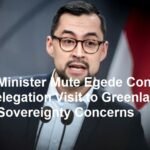Ukrainian President Volodymyr Zelensky on Saturday, March 29, 2025, issued a stark warning that Russia is preparing to launch a fresh military offensive this spring. According to President Zelensky, the planned attack is designed to strengthen Moscow’s position in ongoing peace negotiations, further complicating an already volatile diplomatic situation. This new development comes as a dramatic twist in the conflict, following a recent episode in which the United States and Ukraine jointly rejected Russian President Vladimir Putin’s proposal for a temporary government in Ukraine under United Nations supervision.
In a press briefing held in Kyiv, President Zelensky detailed what he described as “clear signs” of preparatory military movements along the eastern front. He emphasized that intelligence reports indicate the build-up of Russian forces near critical strategic points, suggesting that an aggressive spring campaign is imminent. “We cannot ignore these signals,” Zelensky stated. “The timing of this move is no coincidence. It is a calculated effort by Russia to gain leverage during peace talks.” His remarks have sent ripples through the international community, with many analysts now revisiting the possibility of further escalations in the conflict.
The backdrop to these developments is the fraught peace process that has been under intense scrutiny over the past months. Negotiations, which were once bolstered by a unified stance from both the United States and Ukraine, encountered a significant setback when President Putin proposed the establishment of an interim government in Ukraine. This proposed government would operate under the oversight of the United Nations, a condition that both Kyiv and Washington found unacceptable. Both nations argued that such an arrangement would undermine Ukraine’s sovereignty and jeopardize its long-term political stability. The rejection of Putin’s proposal has, according to Ukrainian officials, intensified Russia’s resolve to secure a more advantageous bargaining position.
International reactions to President Zelensky’s warning have been swift. Several Western leaders have expressed their concern over the possibility of renewed hostilities. In a joint statement issued by NATO representatives, officials reaffirmed their commitment to supporting Ukraine’s territorial integrity while cautioning Russia against any moves that could reignite full-scale conflict. “Any further military aggression will not be tolerated,” declared one spokesperson. Analysts suggest that the timing of the offensive, if it occurs, could be critical; it might force Ukraine into a defensive posture during negotiations, thereby shifting the balance of power in favor of Moscow.
As the situation evolves, military experts warn that the new offensive could have serious ramifications not only for Ukraine but also for the broader European security architecture. The potential escalation may lead to increased casualties and further displacement of civilians, adding to an already devastating humanitarian crisis. Local authorities have already begun contingency planning, urging communities in vulnerable regions to remain vigilant and prepared for possible evacuation orders.
President Zelensky’s remarks have been met with both domestic and international support, though some critics question the reliability of the intelligence reports. However, sources close to the Ukrainian defense ministry insist that the data is compelling and that preventive measures are being put in place to counter any imminent threat. “We are taking all necessary precautions to defend our nation,” a senior military official commented. “Our resolve is strong, and we are ready to meet any challenge head-on.”
The coming weeks are expected to be crucial in determining the future course of the conflict. As peace talks continue to stall and military tensions mount, the world watches with bated breath. The international community remains hopeful that diplomatic efforts can be reinvigorated, even as the specter of renewed warfare looms over Eastern Europe. For now, President Zelensky’s warning serves as a critical reminder of the precarious balance between dialogue and conflict—a balance that may soon tip if Russia follows through on its aggressive plans.
In the midst of uncertainty and heightened tensions, Ukraine calls on its allies for unwavering support in safeguarding its sovereignty and ensuring that any peace settlement respects the nation’s independence and democratic values.












